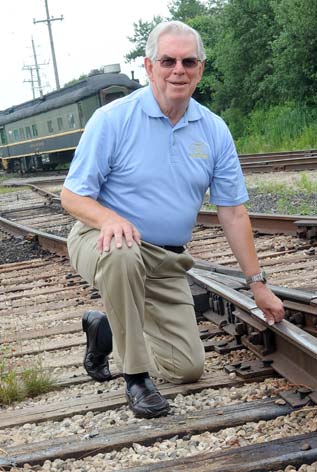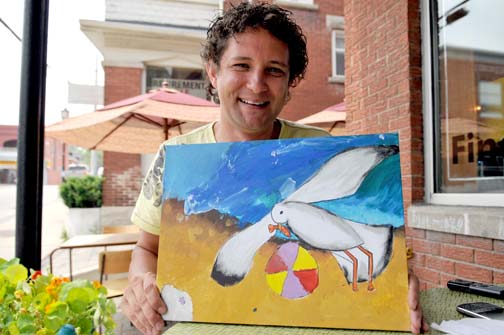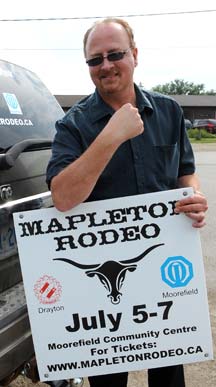Along with a sizable bill for taxpayers, Waterloo Region’s light rail transit scheme comes with a price for the St. Jacobs-based Southern Ontario Locomotive Restoration Society. New track configurations and traffic means the Waterloo Central Railway will be displaced from its Waterloo terminal, but the organization remains optimistic.
![Southern Ontario Locomotive Restoration Society president Ross White, seen here at the St. Jacobs workshop, worries about what the region’s LRT plans will mean for the organization.[Elena Maystruk / the observer]](https://www.observerxtra.com/content/images/wp-content/uploads/2013/07/inpost_lrt.jpg)
“It’s awkward at the moment, it’s a challenge, and we have a lot invested in the region. We’re doing really well so we don’t want to leave the region,” said SOLRS president Ross White.
The WCR recently renewed a contract allowing it access to the Waterloo Spur Railway – a single railway track from Kitchener-Waterloo to Elmira owned by Waterloo Region – for another year (making roundtrips from a station at Erb Street in Waterloo to Elmira). But in 2014 the organization will lose access when the heavy rail gets ripped out to be replaced by two light rail tracks northbound and southbound.
While the region is committed to the LRT plan, councillors appear to be taking WCR’s plight seriously, said White.
“Regional council asked staff to find a way to ensure that the Waterloo Central Railway can stay here. We don’t want to leave. We have a lot invested: we have a $500,000 shop in St. Jacobs, and we obviously can’t move or take that with us.”
Transport Canada won’t allow heavy rail and light rail on the same track at the same time and the LRT’s tentative schedule, 5 a.m. to 1 a.m., will also mean changes for the Goderich-Exeter Railway that provides service to township industries at night.
Commissioner of transportation and environmental services Thomas Schmidt said this week that the region is working on allotting a window of travel time for the freights, likely 1-5 a.m. He said the new rails will also be of much better quality.
Freight traffic will be able to use the new rails, but because the tracks will be very close to the platform (to allow wheel chair access to the LRT), an extra piece of track will be constructed to move the freight traffic further away from the platform edge.
He adds that talks are in progress to have the WCR trains continue to run from Northfield Drive to Elmira.
“The problem is that there is no parking, and that is the biggest hurdle we have to try and find a solution to. Starting at Northfield, there are just no facilities.” White said in an interview July 2.
At the current uptown Waterloo starting point there is a station, viable parking for customers, and a storage track and basement storage space for equipment. Those amenities will be gone in 2014.
“It leaves us with a number of issues, but the most important one of all is that, on a good day, we have to have parking for about 100 cars,” White said.
Northfield Drive is already seeing a profusion of development, leaving little room for the WCR’s parking needs, facilities and a passing track. Replacing the 800 feet of passing track alone would run the charity about $250,000 to $300,000, a large tab for an operation with revenues of some $250,000 a year. The area will also see regional development as a turning point for the LRT. Buying land for parking would also be difficult and the WCR hope to work out a deal with existing landowners or businesses.
SOLRS-WCR moved its base of operations to Waterloo Region from St. Thomas, Ontario and enjoyed several seasons in the region, restoring antique trains and helping locals ride the rails. White said he hopes to avoid another move and the organization’s success helps him to look on the bright side.
“From the north side of Northfield to Elmira we have been told that we will be able to continue with our operation, so all is not lost. It’s a big challenge for us, but we’re not being kicked out.”









